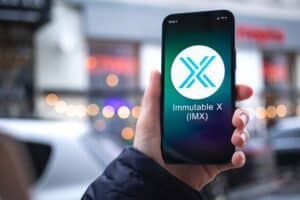
A Detailed Guide on Using Blockchain and Smart Contracts in Procurement
Conventional Procurement Problems Explains
An example of a problem affecting the traditional procurement processes is dependence on manual, paper-founded systems prone to delays, faults, and absence of visibility. This primarily results in challenges in monitoring orders, managing inventory, and ensuring adherence to guidelines.
Secondly, the processes are affected by the absence of transparency and trust in traditional procurement. An environment of mistrust and suspicion can be created by limited visibility into pricing structures, supplier practices, and possible conflicts. This makes developing long-term relationships with suppliers challenging and increases the risk of corruption and fraud.
Traditional procurement processes are mostly reactive instead of proactive, meaning that firms focus on meeting immediate needs instead of strategically planning for the future. This may result in missed opportunities for supplier consolidation and cost savings.
Understanding Viable Blockchain Applications in Procurement
Blockchain technology provides many applications capable of transforming procurement processes and boosting efficacy across the supply chain. An example of a significant application entails supply chain transparency and traceability.
Recording transactions and goods movement on an immutable blockchain ledger can give organizations unprecedented visibility into the products’ validity, origin, and state. Smart contracts automate and restructure procurement processes, minimizing manual intervention and risk of faults.
The self-executing contracts trigger payments automatically upon the satisfaction of predefined conditions. This hastens transaction times, reduces costs, eliminates intermediaries, and enhances cash flow.
Blockchain-founded decentralized marketplaces are coming up as a disruptive force in procurement. This provides a safe and transparent platform for purchasers and suppliers to interact directly.
Purchasers can easily compare costs, assess supplier performance, and make appropriate buying decisions. On the other hand, suppliers can access a broader market, exhibit their services and products, and develop trust via transparent ratings and reviews.
Importance of Smart Contracts for Procurement Optimization
Smart contracts are self-executing agreements containing terms directly written on code and are crucial in enhancing procurement processes. Their importance is based on the ability to streamline and automate different tasks, minimizing the risk of faults and manual intervention.
Smart contracts’ transparency and immutability boost accountability and trust in procurement. All contractual conditions and terms are recorded on a blockchain ledger that can be accessed by all appropriate parties, reducing the possibility of disputes and ambiguity.
Smart contracts enable firms to execute intricate procurement strategies efficiently. One can program them to handle various scenarios, allowing the purchasers to optimize inventory levels and negotiate better deals.
Phased Execution Blockchain and Smart Contracts in Procurement
A phased approach permits organizations to progressively embrace blockchain technology, avert risks, and ensure a seamless transition. The initial stage entails recognizing explicit use cases where smart contracts and blockchain can offer the most value.
The second stage involves creating a proof-of-concept (PoC) to test the chosen use cases’ viability and efficacy. This entails developing and deploying a pilot project on a restricted scale, utilizing actual world scenarios and information.
The third stage entails scaling the solution to a broader range of stakeholders and processes. It involves cautious coordination and planning, ensuring smooth incorporation with current processes and systems.
Offering suitable support and training to users is vital since it enables them to utilize the new technology efficiently. Consistent monitoring and assessment are essential in tracking the solution’s performance and identifying improvement areas.
Problems Linked to Executing Smart Contracts in Procurement
An example of a significant challenge is the absence of interoperability and standardization between blockchain platforms. The blockchain ecosystem’s disjointed nature can develop challenges in incorporating smart contracts with current procurement processes and systems.
Secondly, the legal and regulatory landscape of smart contracts needs to be solved. Smart contracts’ legal enforceability and adherence to guidelines remain uncertain in several jurisdictions, while their immutable nature can pose challenges when annulments and alterations are compulsory.
Final Thoughts
Some organizations can be affected by the technical intricacy of smart contract development and execution. Specialized expertise and skills are needed to design and deploy reliable, safe, and effective smart contracts. Smart contracts can be affected by susceptibilities and bugs, resulting in operational interruptions and financial losses.




